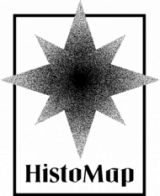Students in Portugal show low proficiency rates in national History exams in the final grade (12th) of secondary school [the average marks vary between 9.0 and 11.0 out of 20.0 points in the last 10 years]. Taking this statistical evidence as the starting point, the HistoMap project aims to assess history curricula design, teaching practices and professional development needs, students’ attitudes and learning habits in the subject, analysis and interpretation of national exam results (provided by official organizations), and situated and in-depth analysis of the teaching process (in three schools – or three clusters of schools – with different performative profiles), among others evidence-based research tasks.
It follows a research design guided by a set of mixed methodologies (both quantitative and qualitative data), in order to improve scientific and critical teaching and learning of history and to influence public education policies in Portuguese compulsory schooling. The attitude of the researchers is guided by several purposes: scientific (to produce and transfer knowledge, to contribute to a more reflexive and conscientious society), educational (to develop solutions that contribute to the deepening of the scientific, cultural, civic and anthropological meaning of history, taking into account the professional development of teachers), and public service (to support rational decisions regarding the promotion of historical literacy and open access to the project outcomes).
